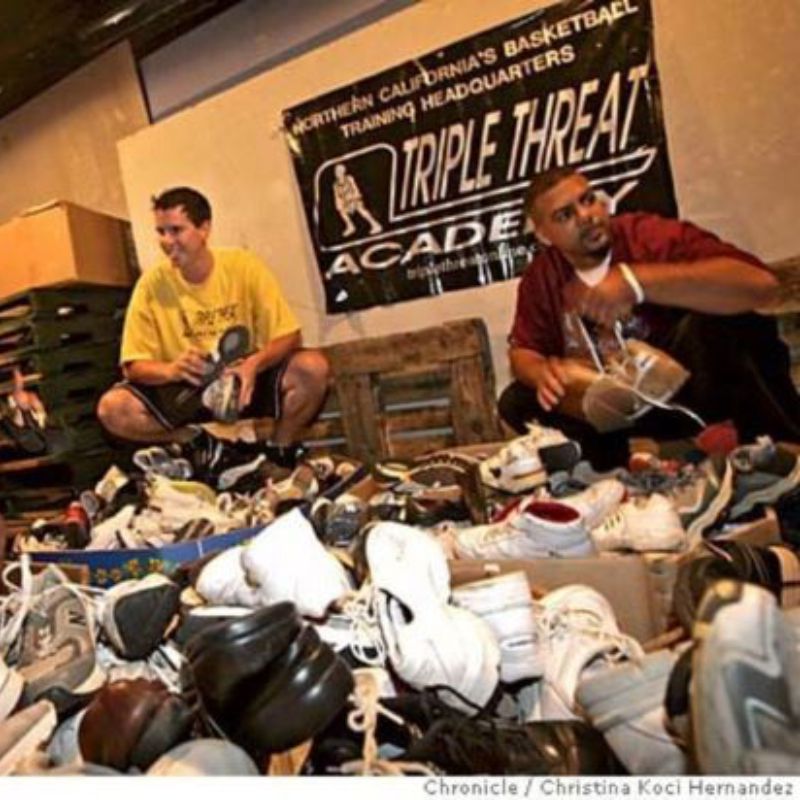WHERE THERE'S A NEED, THE SHOE MUST GO ON
Mitch Stephens
3ª feira, 2 de Agosto de 2005
San Francisco Cronicle
O técnico assistente de basquete do Bishop O'Dowd, Tony Freccero, viu as dificuldades dos jovens do centro da cidade durante toda a sua vida.Ele cresceu em San Leandro, jogou basquete no Bishop O'Dowd e é codiretor do acampamento Triple Threat Basketball no coração de Oakland.
Mas foi preciso uma viagem de duas semanas para a Bolar Basketball School no Brasil no verão passado para enfrentar o que ele chamou de pobreza e dificuldades absolutas.
Não havia pisos de madeira ou tabelas de vidro no Bolar.
Lajes de concreto escorregadias, telhados com vazamentos e aros enferrujados e tortos eram o fascínio para essas crianças do basquete, que aceitavam o treinamento com sorrisos largos e tortos e corpos frágeis.
"Foi tocante e de partir o coração ao mesmo tempo", disse Freccero.
O que mais mexeu foi quando ele notou os dedos saindo dos sapatos de alguns adolescentes brasileiros. Alguns não tinham calçado algum.

Essa visão está no cerne do atual brainstorming de Freccero, o Projeto Shoe Assist.
Dois meses atrás, ele montou pontos de coleta em vários locais de East Bay para as pessoas doarem seus tênis usados que ele entregaria a Bolar no final deste mês.
Sua meta era coletar de 500 a 1.000 pares, mas graças ao forte marketing e uma comunidade generosa, Freccero está pronto para descarregar quase 3.000 pares.
"Isso ganhou vida própria", disse Freccero. "Tem sido incrível e avassalador. Ainda estamos recebendo ligações de pessoas que queriam contribuir, mas tivemos que encerrar. Temos que organizá-los agora."
As crianças brasileiras não vão marcar Chuck Taylors desgastados.
O Golden State Warriors doou 100 pares novos. A Nike também. Freccero estima que 350 calçados serão novos. "Recebemos sapatos de bebê até o tamanho 18", disse ele. "Temos mocassins, botas de trabalho, o que você quiser e nós temos."
Quarenta por cento dos calçados serão enviados por via aérea esta semana para o Brasil.
Os outros 60 por cento serão transportados por navio. De acordo com Freccero, calçados, em vez de dinheiro, são frequentemente oferecidos a adolescentes carentes por traficantes de drogas sul-americanos em troca de eles traficarem substâncias ilegais.
"Se pudermos equipar esse mesmo garoto com seus próprios calçados, então talvez o mantenhamos longe das ruas e nas quadras", disse Freccero.
MAPA DO SITE

